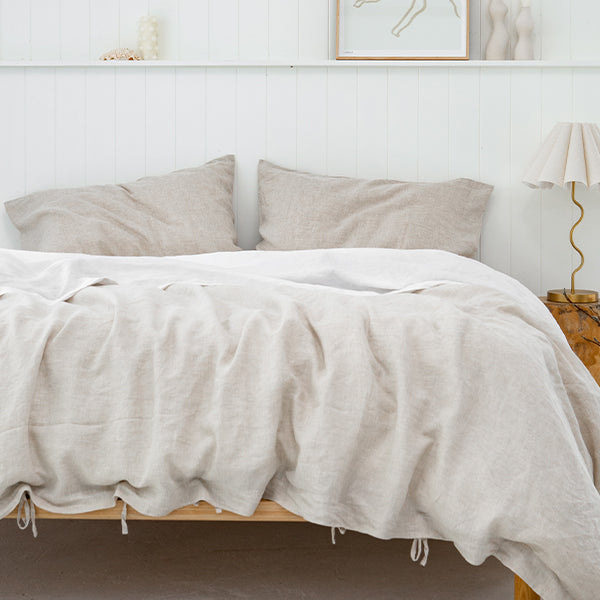
What are the benefits of linen bedding?
Posted: 23 February 2023
Here at I Love Linen, we have years of experience working with linen and working with trusted makers so that we can spot premium linen from a mile away.
So what is Linen?
Linen is a natural material derived from the delicate fibres of flax plants. Linen is a natural fibre, like cotton; however, flax plants don't need a lot of water to grow, making linen a more sustainable option. In addition, linen is a strong and durable fabric. Hence its popularity in the homeware space.
How is Linen Made?
From flaxseed to your bedsheets. As opposed to cotton, flax is made from fibres derived from flax stems rather than the cotton bolls that grow around cotton seeds in the case of cotton. The creation of flax into fabric requires a little more time investment. First, flax seeds grow for about 100 days. Then the crop is harvested (usually by machine but by hand is also possible).
Next, the flax goes through a machine for fibre separation that removes seeds and leaves. After that, the flax stalks need to be broken up to split the unusable outer flax stalk from the inner stalk, which will be used to create linen. Once the inner stalk has been separated, it's time to comb the strands. After combing, the linen is ready to be spun, connecting the shorter strands. Then the strands are reeled onto a bobbin. Finally, the yarn is left to dry. At this point, it's prepared for being dyed and treated for use.
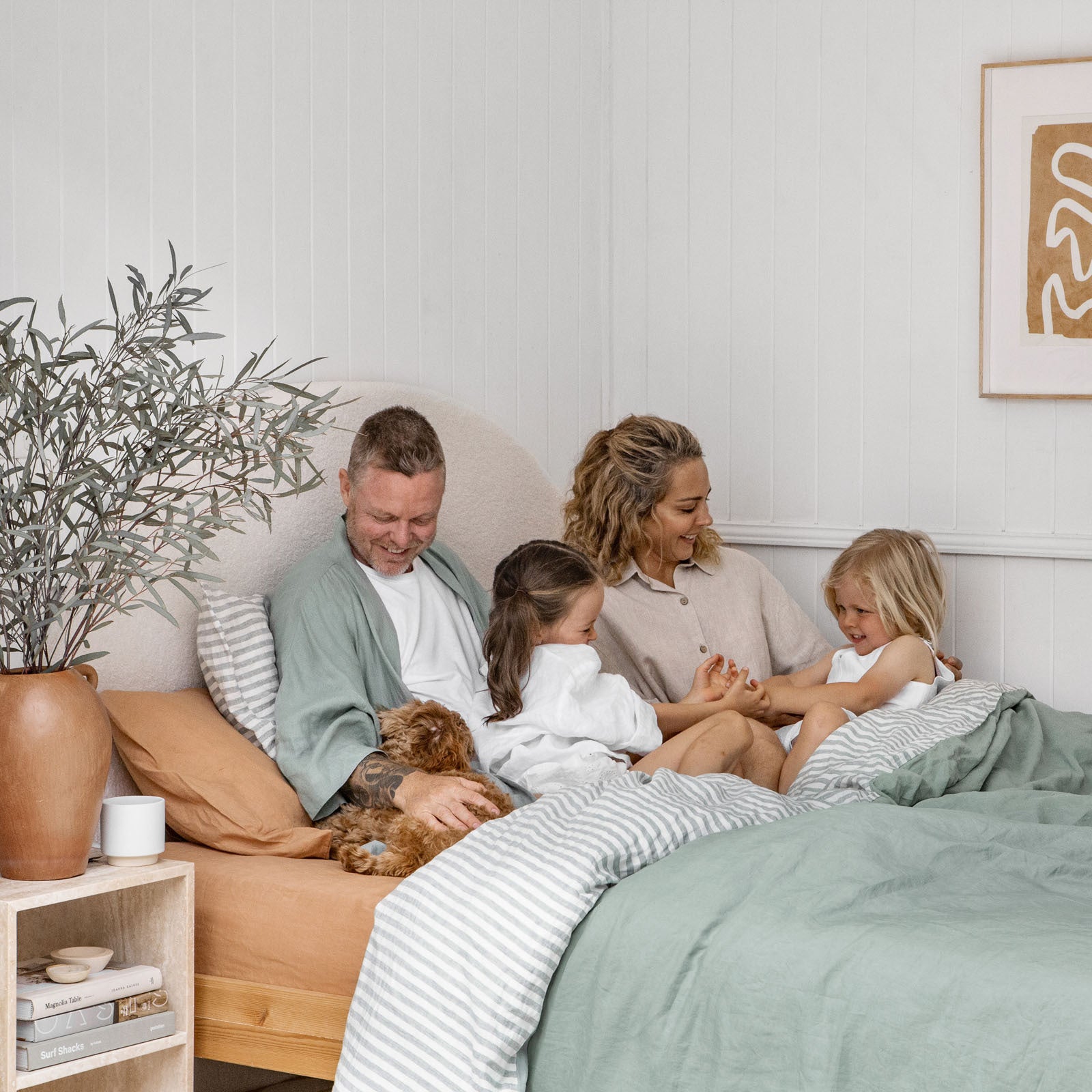
Which type of Linen is best for bedding?
Here at I Love Linen, we have years of experience working with linen and working with trusted makers so that we can spot premium linen from a mile away. Some key factors to consider when purchasing linen for your bed sheets include:
- The best linen comes from Europe
- Long stapled yarns are a more premium option, providing a longer-lasting fabric
- Safe harvesting of flax stalks is important
- Effective pretreatments make a difference in the quality
- Ensure that you buy from an expert weaver
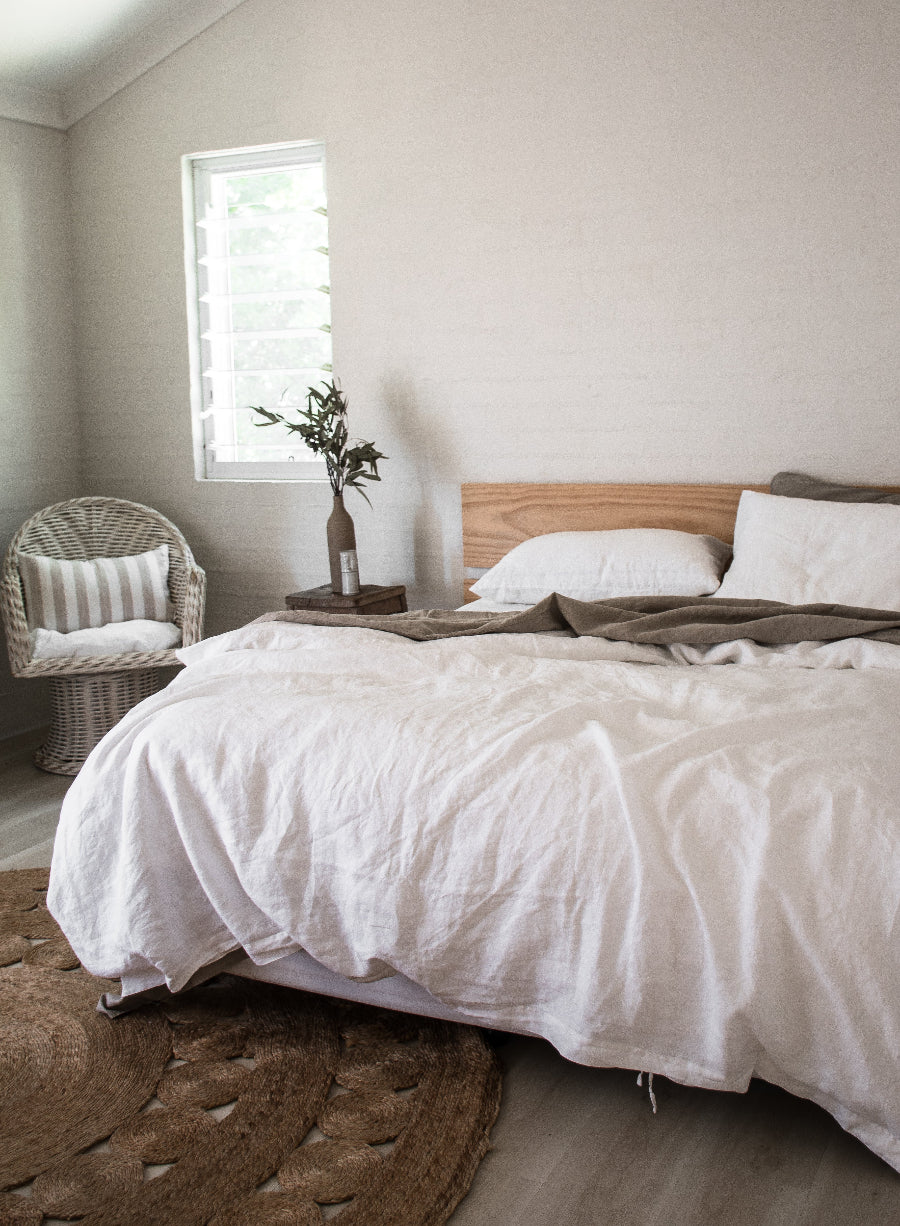
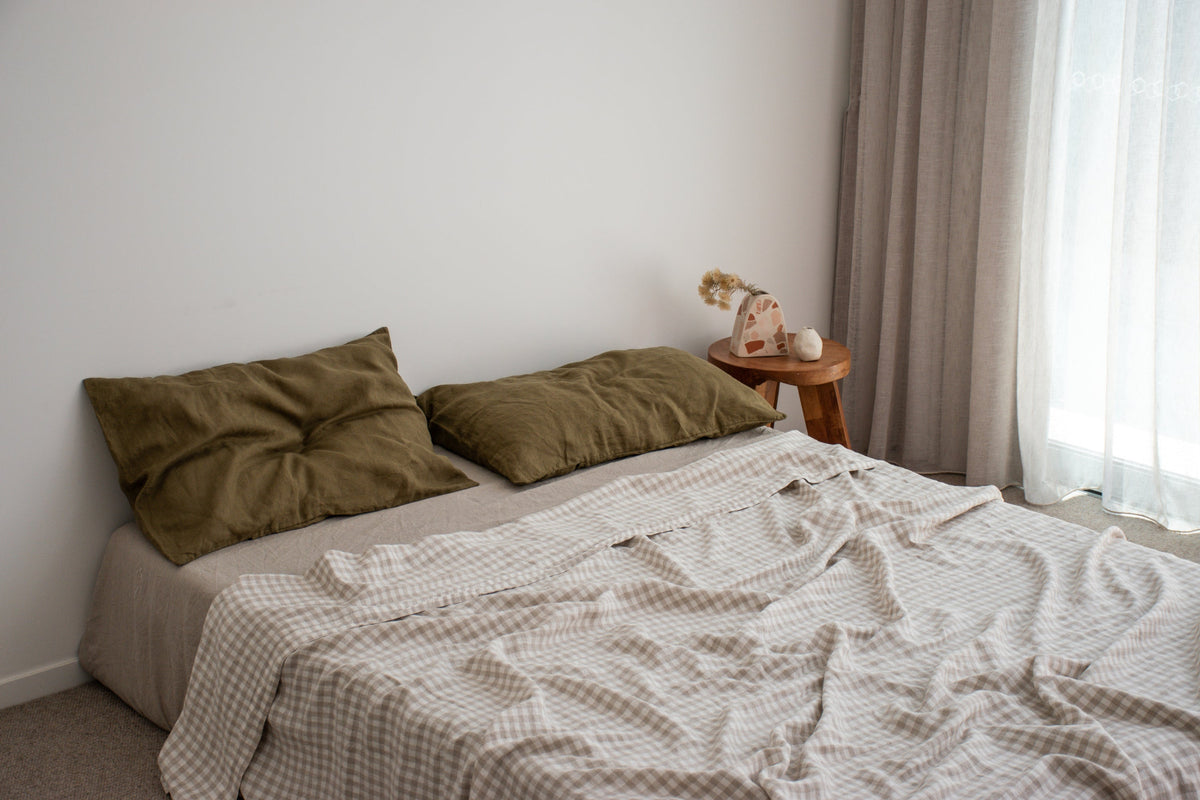
What are the benefits of Linen bedding?
1. Linen Gets Softer After Use
Linen gets softer with every wash. This is because the pectin that binds the fibres gradually breaks down. You do not need to use fabric softeners to soften your linen. They will actually get in the way and affect the linen's porousness. Linen is a relatively low-maintenance fabric; it's important, however, to look after it properly. Check out our care guide to discover our top tips for how to wash linen.
2. Linen is Temperature Regulating
Linen is naturally temperature-regulating, keeping you warm in winter and cool in summer. Due to linen's excellent heat conductivity and breathability, it can direct heat away from the body in warmer weather. Combined with linen's ability to wick away humidity and perspiration, this makes for an excellent summer option, perfect for hot sleepers. When it comes to winter, linen is also a natural insulator, preserving your body's heat and wicking away moisture.
3. Linen is Highly Absorbent
Linen fibres can absorb up to 20% of their weight in moisture without feeling damp. These moisture-wicking properties prevent the fabric from clinging to your skin. Instead, humidity and sweat can be absorbed and wicked away from your skin before swiftly evaporating.
4. Linen bedding is Durable
Linen is one of the most durable fabrics on the market. As mentioned, linen fabric gets softer with every wash, unlike other fabrics that can be damaged after only a few uses. Linen's durability is largely thanks to the strong natural flax fibres from which linen fabric is constructed.
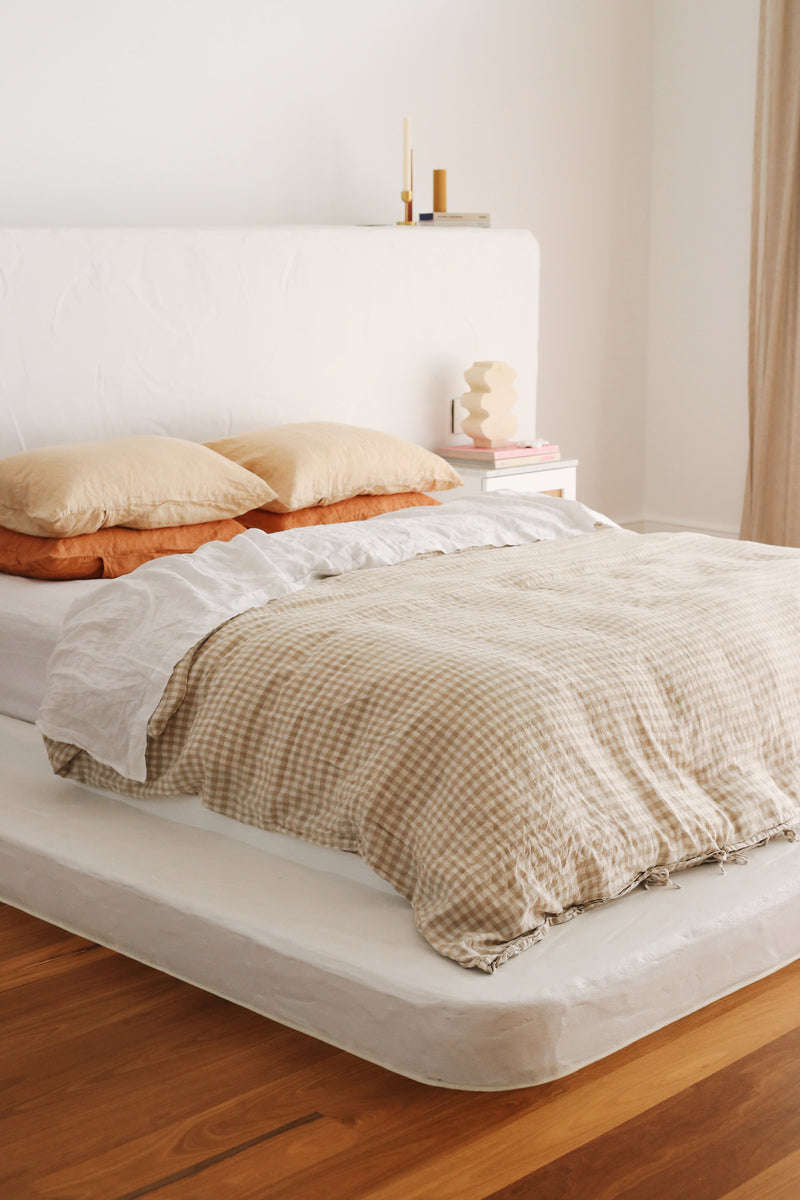
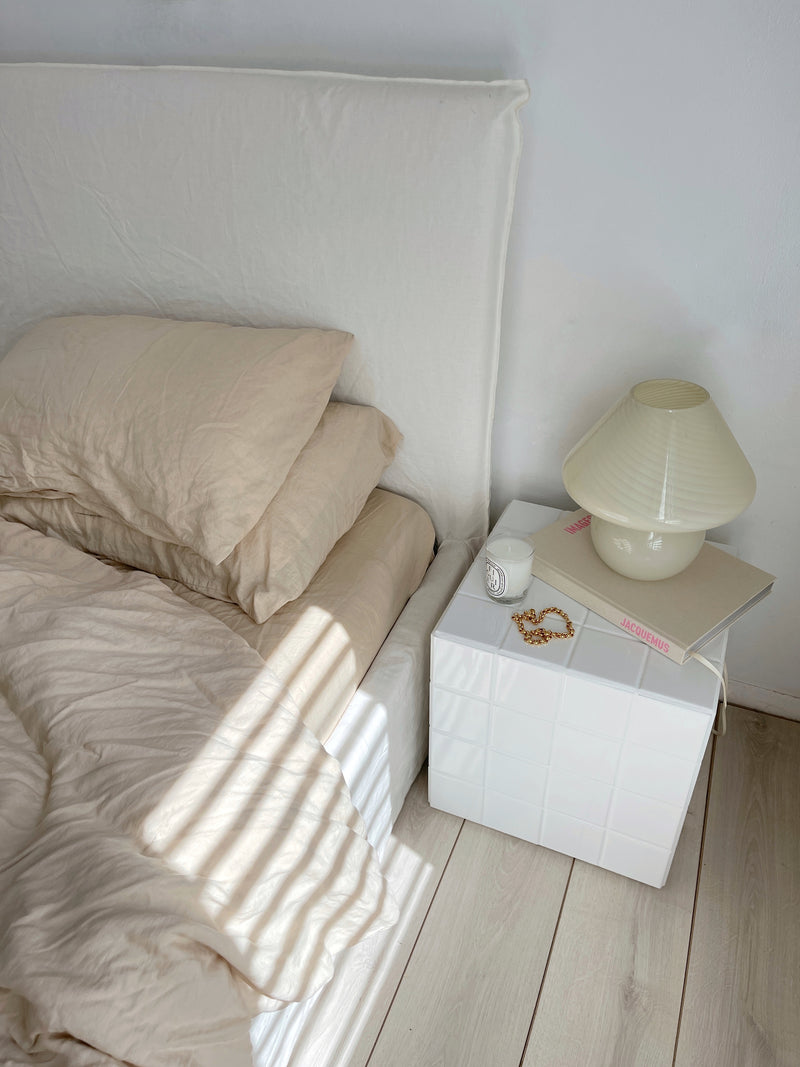
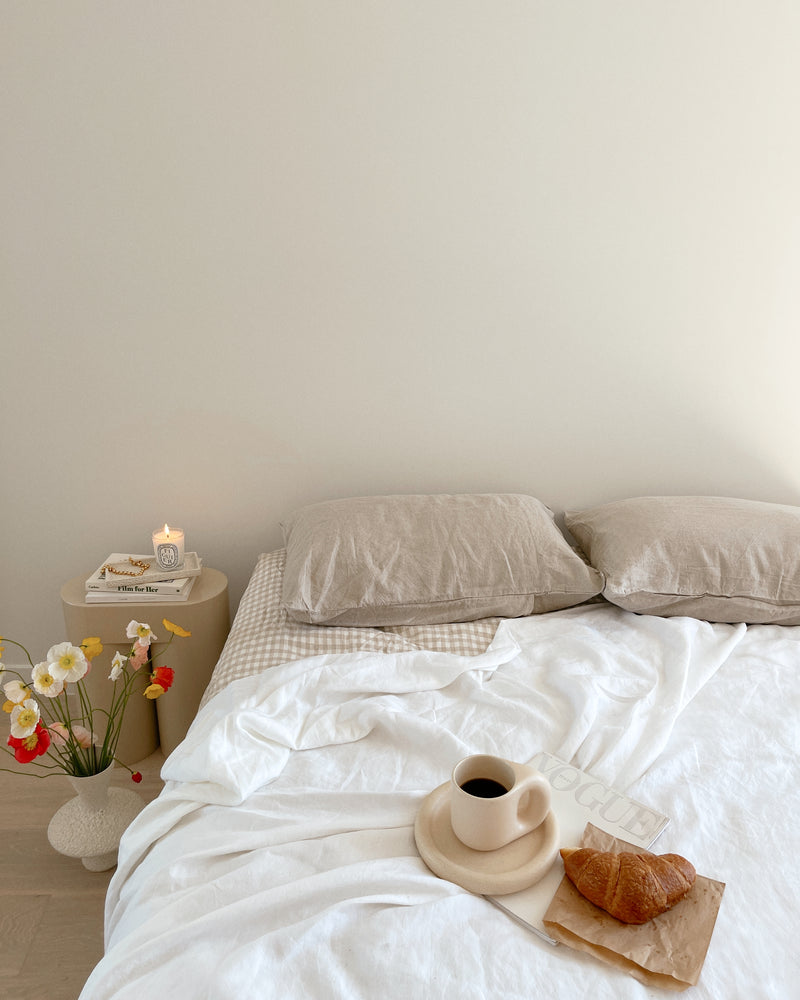
5. Linen is Sustainable
Linen is a natural fibre, meaning the fibre is derived from a natural source (in this case, a plant) rather than human-made (synthetics). Linen is a biodegradable fabric, meaning it can decompose at the end of its (very long) life. Finally, flax uses less water. A presentation from the European Confederation of Linen and Hemp said that across its lifecycle, a linen shirt will use 6.4 litres of water compared to a cotton shirt's 2700 litres.
6. Linen is Antibacterial
Linen can fight bacteria naturally as a natural antibacterial, antimicrobial, and antifungal. Flax material contains silica, or silicon dioxide, a property unique to linen that stops the growth of bacteria that can cause fermentation.
7. Linen is Hypoallergenic
Linen is hypoallergenic and does not cause allergies. Therefore, it's an excellent option for individuals with allergies or sensitive skin. As we spend so much time sleeping, it's essential to opt for a comfortable and safe fabric; pure linen bed linen is a good option for everyone, but especially those with sensitive skin.
8. Linen is Luxurious
Put simply, linen looks good. Linen bedding has a very cool, laid-back, sophisticated look. Without trying too hard, linen is a very stylish and luxurious addition to any bedroom. Linen sheets are the perfect choice for your bedroom. For the best linen sheets, shop I Love Linen's range of pure linen sheets today!







